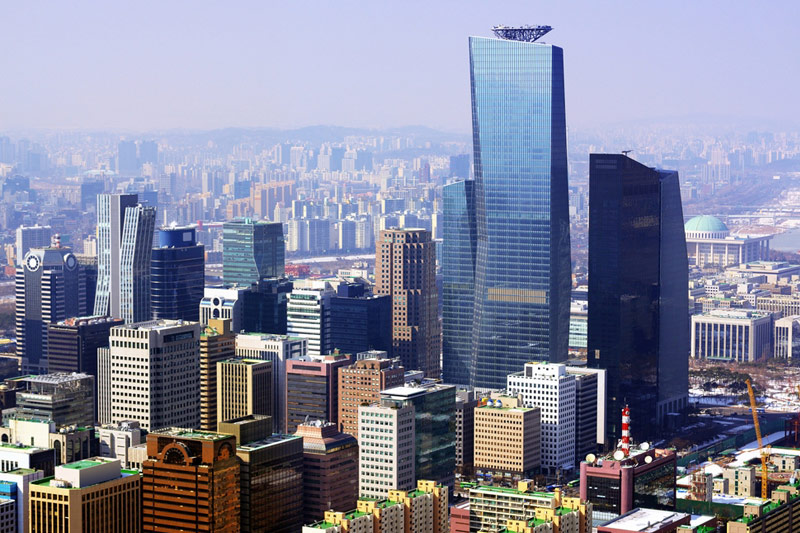* Fund's CIO called into four parliament hearings since
September
* Fund cast decisive vote in July's Samsung Group merger
* One in five South Koreans will be 65 or over by 2026
By Joyce Lee
SEOUL, Oct 22 (Reuters) - Last year investment managers at
South Korea's National Pension Service (NPS), which oversees
$430 billion in assets, were looking to buy a portfolio of
blue-chip stocks from emerging markets including Southeast Asia.
The investment was to have been part of a push to diversify
a heavily domestic portfolio, but ultimately the world's
third-largest pension fund took a pass.
Fear of second-guessing and criticism by auditors and
politicians if the investment turned sour outweighed the promise
of upside, said an NPS investment manager familiar with what
happened.
"It's always: 'is there a possibility this could go bad?',"
said the investment manager, declining to be identified as he
was not authorised to speak to the media.
"Because some investment managers might have been previously
criticised (by government auditors) and now avoid investments
that could be controversial."
Heavy scrutiny distracts NPS managers from generating higher
returns on retirement money earmarked for the fastest-ageing
population among advanced economies, insiders say.
Since last month, the chief investment officer of NPS has
been brought before four parliamentary panels to explain and
justify investment decisions - an increasingly onerous annual
process that has "cut into" the work of investment managers
below him, said another NPS manager.
NPS' domestic influence, and the subsequent scrutiny it
faces, has grown steadily as its assets have ballooned. Set up
in 1988, NPS managed 500 trillion won of assets as of end-July,
compared with around 141 trillion won at the close of 2004.
"The balance between accountability of a public fund and the
room to make returns is important," said an NPS spokesman.
While NPS might feel vindicated about its Southeast Asia
decision last year - an MSCI index of stocks in that region
.MISU00000NUS has fallen about 14.6 percent in the year to
Oct. 21 - it knows it needs to diversify, and it wants at least
30 percent of its assets to be held overseas by 2020.
At the end of 2014, 78 percent of NPS' holdings were
invested in South Korea, even though the country accounts for
less than 2 percent of global capital markets.
In contrast, the Canada Pension Plan Investment Board
(CPPIB) held about 76 percent of its assets overseas as of
March, while Japan's Government Pension Investment Fund had
around 35 percent of its assets outside Japan as of June.
In South Korea, NPS owns 5 percent or more of some 166
companies including Samsung Electronics 005930.KS and Hyundai
Motor 005380.KS .
NPS's awkward influence came to the fore in July when it
cast the deciding vote for a merger between two units of Samsung
Group SAGR.UL - a deal that many investors said short-changed
minority shareholders.
In doing so, NPS bypassed an external committee, mostly of
academics, charged with advising on difficult votes.
UNDERSTAFFED
Political interference goes beyond second-guessing.
As part of a government push to decentralise from Seoul, the
NPS investment office will relocate next year to the small city
of Jeonju, a move that some private fund managers and insiders
say makes NPS a less attractive place to work.
It is also relatively understaffed.
NPS had 261 people in its investment office as of September,
managing on average about 1.9 trillion won ($1.68 billion) in
assets each. By comparison, CalPERs, the largest U.S. pension
fund, has about 370 people in its investment office overseeing
$288 billion in assets, a CalPERS spokesman said, or $779
million each.
To address its staffing shortfall, NPS is hiring about 70
investment managers this year, and for the first time, four
foreigners, for offices in London and New York, but NPS top
brass still think they need more, according to an NPS spokesman.
The NPS hopes more staff means squeezing more returns out of
investments.
Its 6.9 percent average annual return between 2009 and 2013
lagged the 11-13 percent rates of Norway's GPFG and the
Netherlands's ABP, the world's second- and fourth-largest
pension funds, according to South Korea's parliamentary budget
office.
It slightly outperformed Japan's GPIF, the largest pension
fund.
NPS said it is a long-term investor and its performance
should be judged accordingly.
But the clock is ticking - one in five South Koreans will be
65 or over by 2026.
In 2043, the value of NPS assets is expected by the
government to peak at 2,561 trillion won before declining, as
payouts overtake fund inflows, at current distribution rates.
Last year, NPS reported a modest return rate of 5.25
percent, partly because of a negative 5.4 percent return on the
Korean stocks held by NPS.
"There is no clear public consensus on how to manage the
national pension scheme," said Shim Ji-heon, a researcher at the
National Assembly Budget Office.
"We need to start a public discussion on whether to leave
the fund's inflow and outflow levels as they are, or to rethink
the level of risk the pension is willing to take on."
($1 = 1,133.7200 won)
